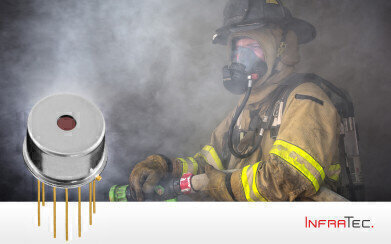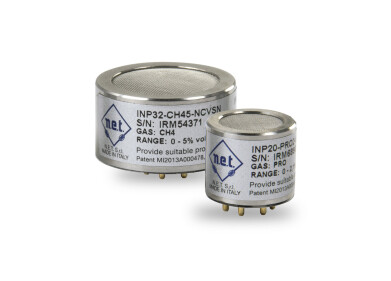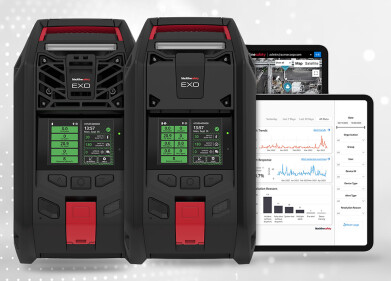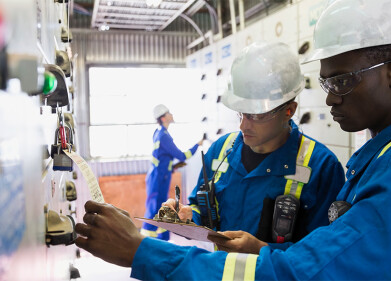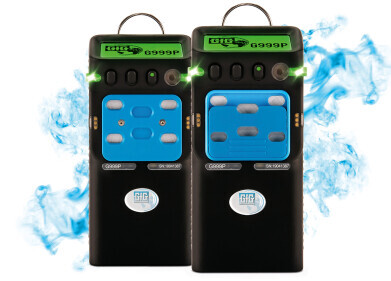Gas detector
Miniature spectrometer spearheads development of a new explosion‐proof gas detector
Dec 21 2018
Gas detectors for detecting explosive and combustible gases are an indispensable part of the protective equipment use by fire brigades, disaster relief and other civil rescue teams. These devices enable helpers to establish whether an explosive atmosphere is present at the emergency location, which represents an otherwise undetectable hazard. The most accurate knowledge possible about the explosive gases and their spatial expansion is decisive for ensuring fast, safe and efficient intervention. In the course of the MIREX project sponsored by the German Ministry of Research and Education, which ends in May 2019, InfraTec has been working on the development of an innovative device that supports a faster and more exact assessment of the danger.
The core of the innovation is a miniaturised infrared spectrometer with a tunable, micromechanical Fabryâ€ÂPérotâ€ÂFilter and fast photodiode as a detector. The spectroscopic measurement technique with a spectral resolution of 30 â€Â 40 nm in the spectral range 3.0 – 3.7 μm makes it possible to detect and quantify a wide variety of gases with just one detector element. The previous customary NDIR detectors with fixed narrowband filters are normally only calibrated to one substance and do not allow for any differentiation. Due to the compact design in a TOâ€Â8 housing, insensitivity to vibrations as well as low energy consumption the spectrometer provides good preconditions for integration into an explosionâ€Âproof, portable gas detector. The MIREX project is laying the foundation to ensure that even gases with heavily overlapping spectrums such as ethane and propane can be detected later in practice by a complex analogue and digital signal evaluation.
As part of the personal protective equipment, the gas detector will be able to increase safety for rescue workers during operations in the future. For this purpose it will measure explosive and combustible gases within the range of the lower explosion limit. This limit marks the lowest concentration, in which a gas can ignite and a flame can spread automatically. The measurement results reach the operations centre by radio. In this way, several rescue forces can be better coordinated and monitored.
With GfG (Gesellschaft für Gerätebau mbH), the Fraunhofer Institute for Physical Measurement Technology Freiburg as well as the Institute for Fire Brigade and Rescue Technology of the Fire Brigade of the city of Dortmund, three additional partners are working alongside InfraTec, which bring their expertise to bear in this special application. In terms of perspective, the device has a far greater range of application, however. The basic operating principle can also be adapted for other purposes. The concept of similar detectors for mining, refineries and chemical industry is highly conceivable
Digital Edition
PIN 25.5 Oct/Nov 2024
November 2024
Analytical Instrumentation - Picturing Viscosity – How Can a Viscometer or a Rheometer Benefit You? - Sustainable Grease Formulations: Evaluating Key Performance Parameters and Testing Method...
View all digital editions
Events
Jan 20 2025 San Diego, CA, USA
Jan 22 2025 Tokyo, Japan
Jan 25 2025 San Diego, CA, USA
SPE Hydraulic Fracturing Technology Conference and Exhibition
Feb 04 2025 The Woodlands, TX, USA
Feb 05 2025 Guangzhou, China
